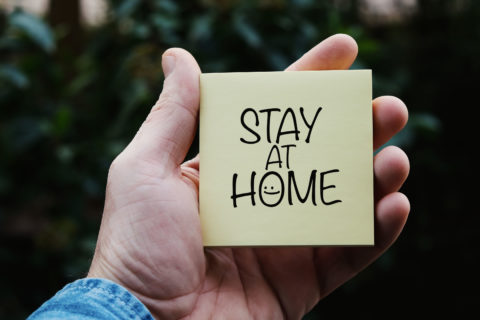Emerging needs as springboards for innovation
It has now been roundabout four months since the corona crisis has hit the European continent. Many businesses have been thrust into deep uncertainty. It is exactly during this phase of disruption that we should look closely at the fickle and unstable “interim-now” in order to understand how to build the future.
What I’m trying to say is: Businesses should do a deep dive on the shifting consumer needs in their industry – now. Why now? Is this not an unstable in-between phase with current attitudes and behaviours not lasting beyond the next weeks and months? Yes, and that is exactly why we need to do it now. It rarely happens that everyday routines and attitudes are so fully disrupted. In moments of disruption, we start questioning our usual behavior, our usual attitudes, and we start becoming aware of our true needs as human beings and consumers.
It is in this moment, when businesses can catch a glimpse of how they can build a future that serves and answers these needs. After we go back to a “new normal”, people might lose track of some of these needs again, they will be pragmatic and might forget about many of their aspirations. So…if we want to see clearly what people wish for in a future that better serves their true needs, we need to look now, while people are still acutely aware.
Back in April, when the experience of the lockdown was still fresh in Germany, we dug into the shifting everyday behaviors and attitudes of people. Together with our friends from Grabarz JMP, a Germany based innovation consultancy, we conducted a “quick dive” ethnography study with 30 German participants, of all walks of life, age groups and widely spread across the country. We used a Smartphone research approach, where participants gave us feedback on different daily tasks, using video, voice, text and images.
We took an open perspective: What aspects of your daily life have changed? What is challenging for you? What are the surprises? What is working better than expected? We also got people to talk us through their new routines and eventually got them to write us a letter from the future, from the summer 2021 – where they write back and tell us about their ideal post-corona-future – what has changed, what goes back to how things used to be. We received more than 400 posts in three days in the mobile ethnography phase. After this, we got people together for 4 online group discussions to dive deeper into the emerging topics.
So, now that we identified some shifting needs, does this mean that people will go ahead, invest their energies and put them into practice to build the new post corona society? Well no, or at least, not on their own. They need help in making their wishes come true. And that’s exactly where businesses come in. These emerging needs can be springboards for innovation. Here are some of the most salient:
- Healthy egoism
How can brands support the need to act out a healthy form of egoism? How can they support people in maintaining a safe space that they can defend against the stresses of everyday life (once life goes back to normal)?
- Deep sensory experiences
How can businesses help people go deeper into sensory exploration, training and using all their senses to fully immerse themselves in pastime experiences? How can brands help people use and improve their physical skills and make them feel viscerally connected to products and services (co-making?)
- Lively home environment
How can businesses help people get more out of their living environments? To use space more efficiently and create a multi-functional home that caters to fun and activity, creativity, relaxation and serenity, as well as productivity? Can you transform a home office into a gym in 5 easy steps?
- Smarter new work
How can employers create a work environment that caters to different personalities – making it easier for employees to create their schedules of co-working time, fun time and alone time? How can you make the home a better office and the office a better social space?
- Thriving local ecosystems
How can brands support local ecosystems? How can they help people support their local business ecosystem? How can they help local businesses create networks and support each other? Could cooperation and sponsoring help local makers gain broader awareness and boost their business?
- Regenerative Nature
How can businesses and city planners create opportunities for nature to regenerate and actively enlist citizens to help along? How can they help people realize their neighborhood nature projects? How can you create spaces of mindful connection between humans and nature in urban areas?
These are just a few examples to show that listening closely to shifting needs of people during the crisis can help businesses see how they can make their customers happy and create true connection in the long-term – with innovation that helps people realize their inner drives.


